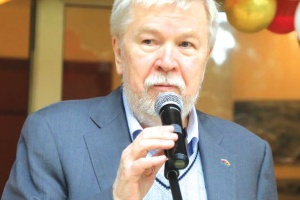“Do you think it wise to sit back and simply watch what’s happening around you?” asked a man in the neighborhood having observed how the youth these days appear indifferent to what can potentially risk their life for not being careful. ‘When I was as young as this guy, I was already married and was the head of the house. I would labor around the clock to provide for my family. Those days, unproductive young man was despised and ridiculed by all; in fact he was considered a burden to the society,’ he mumbled.
“What do you expect me do?’ responded Asefa, somewhat disappointed. He had encountered a similar challenge by someone else two days earlier. He was convinced that things remain the same day-in and day-out. He was unable to see any change in his life whatsoever. Days, whether they come or not meant nothing to him; he was overwhelmed by boredom. That’s the reason why he remained irresponsive to whatever people say to him.
The man took time to soberly bring his idea to Asefa in the way he could easily grasp it. It was not his intention to be mean on him; his attempt was to urge Asefa to beware of the dangers lurking along his life-path. He wanted him to be vigilant and clearly see where he was going and what he should do to make his life worth living. ‘A person who doesn’t know where he is going, doesn’t have destination,’ he thought.
With this in mind, “Well I don’t want you to do anything unusual. It’s just that I am concerned about you. It is my responsibility, as your neighbor and a friend of your mother, to guide and set you on the right track. A young man like you should not be wasted. Much is expected from you.”
“What about me? Why should you care about me?” retorted Asefa, as the film of anger coated his response, “Am I different from the rest of the youngsters in my age?” he added exhibiting his dislikes to such enquiries. His contorted face harbored enmity as he unwillingly forced himself to respond. Several young people in the neighborhood, rather in the whole town, were no less reluctant to pay heed to the advice offered by the elderlies.
They seemed to have passed through the system which doesn’t fit the traditional mold and which only signifies wrong mentoring- primarily the inadequacy of school curriculum, peer groups impact and to some extent the parents failure to inculcating the right moral principles, mental and physical developments at the right time while child was still in the formative years. Now, this appears to be too late. The whole issue centers around the negligent education policy that was consciously designed to create the future adults atrophy.
“Absolutely not, I can boldly tell you that you’re, in fact, much better than most of them; you seem to behave relatively well,” appealed Obo Disasa with a smile tinged with decency on his face. He’d anticipated that the issue he raised would not be easy to settle. Under normal circumstance, the youth, specially, adolescents, depending on their age, feel out of place and arrogantly behave. They are usually silent and upset.
With such attitude, rationality is out of place. The case gets even worse with young people like Assefa who were psychologically and physically injured due to dire poverty deliberately imposed on them; the country is potentially very rich, given opportunity for development is materialized; no reason why people cannot work and earn a living and even prosper.
It was Asefa’s habit to retire early in the evening and rise late in the morning. No electricity or television in their house. There was nothing to engage him to stay late at night for that matter. That day he woke up to the boring breakfast always placed before him by his mother.
“What’s this Mom?’ he impolitely asked without even caring for her nerves. He had hoped he would get good food forgetting his mother’s financial constraints to meet his irrational desire.
“What do you think it is? You have to be thankful.” Children these days have little respect for parents and virtually ignorant to analyze the objective realities. What inconsiderate beings!’ she said under her breath.
“Wait a minute, how dare you expect me to be thankful when you give me such tasteless food every day?” he said without realizing he was talking to his loving mother who always sacrificed for his own good.
“Let me tell you the truth. Asefa, you know my income and how I earn it; while you lie in your bed thoughtlessly, I rise early to fix you breakfast and go to work empty stomach almost every day for your sake. Should you blame me in spite of the sacrifices I pay for your advantage? Do you think you have given money to demand whatever you like?’ she said puffing out hot air of anger almost audible to the ears.
His mother, Almaz, was a widow. Her husband died while Asefa was only two years old. He was the first child in the family followed by two sisters. Her husband left her nothing with which she could bring up the children. Everything was dark and bleak; the situation made her desperate. She had no relatives or anyone to support her.
The so called friends, who frequented her house while her husband was alive, gradually receded into the distance like a sea tide and at last totally turned their backs on her when she needed them most. Among her neighbors, it was only Obo Disasa who had empathy for her. It was virtually impossible for her to imagine that such was the order of the day and such was the meaning of friendship. She had never dreamt that her friends would treat her like that. Trying times show who is a true friend or not.
“In your hay days, everyone rejoices with you but in times of trouble, you weep alone. Sharing your blessings, people always gather round you, but in times of trials, you bare them all alone. What an unfortunate woman I am,” she would often pity herself.
After wrestling hard with herself, she retorted to the idea of working as a house maid with meager income. After she got the job she felt somewhat confident. Her earning would not last her a month. Until the payday, she somehow pushed the month trying to make ends meet. When everything was impossible, she would seek assistance or borrow money from friends. Every penny was seriously considered, spent in thrift; nothing was to be wasted when it comes to particularly food stuff she purchased which was routinely the same type. She could not afford to serve variety in the family’s diet.
Low price items were her preferences and her only option while shopping. Her ways were invariably the same. She at times felt ashamed of going to her dealers to purchasing the same items.
During the past two and half decades, food, the basic human needs has been unbearably expensive and even more expensive, according to an Indian friend, than in India, a country far more densely, may be more than a hundred fold, populated than Ethiopia a noted for her fertility, at least to produce enough food items for her citizens to have easy access to food items; even if they are available, in most cases, they extremely expensive and are more of rejects which people realize after taking them home; the buyers are forced to buy according of the dictates of the sellers.
The concept customers are kings, does not exist in the minds of the country’s business men. In spite of the merciless charges which keeps soaring by the day. They cling on to take it or leave it arrogance. “Are we here to clear the dealers’ garbage paying our money?” often complain many people in bitterness.
Almaz, at times, when things heavily weigh on her, she would bitterly cry out “Why Lord? What have I done to deserve this? How long should I live like that?” tears welled in her eyes until they profusely roll down her cheeks, wetting her neck. She would sob long after she stopped weeping. Unfortunately, she was in a system that did not want to sympathize with her; rather it rejoiced at the dire dehumanizing situation. Such was the atrocious treatment the so called citizens had to suffer.
Her appearance, she was beautiful except that her wretched life condition stole away her attractiveness; her fair skin was somewhat darkened due to the early morning chill and the scorching sunburn during the day time. She was always attired in tattered dirty clothes which were once given to her by a charity organization. She had little time to care for herself; thus her hair which had patches of gray in it was untidily arranged. Nevertheless, despite all these, the beauty of her eyes, were strikingly noticed.
Assefa did not have any choice except eating whatever he was given and neither had his mother to come up with a different type of food from the usual. After his eating ordeal, he would usually go out to bask in the sun; that particular day, he lay on his back above waste under the shade of the tree in front of the house. The defiant cool breeze subdued the burning effect of the sun and helped him relax his body throwing him into sound sleep in spite of the clanging bells in the tower from nearby church. In that circumstance, it appeared that Asefa was in perfect condition free of any worry. Yet that was not the case with him; after waking up, he would find himself drawn back to stress. No wonder, appearance versus reality.
The name house is generic for all types of houses; a mansion and a hut are both called houses but the levels of their standard strikingly vary. Such differences always intrigued Assefa. “Is such wild disparity between the rich and the poor man-made or God’s curse from above?” he wondered covering his face with his two hand as if trying to shut out the unfair world; the merciless world that tenaciously clung on to him; how to rid himself of this was his greatest worry. No hope seemed to loom in the near horizon. “Well,” he said “nobody knows what the future holds,” still trying to cling to his scrape courage.
Asefa was not fortunate to live in a mansion. Poverty had doomed his family to the lowest level of life standard. He didn’t even know the difference between a hut and a mansion and the quality of life that lay therein. What he sees in the type of life his rich friends enjoy, it often puzzled him; such unfair world, he could not reconcile it with his own low life. In his view, the world ought to be fair and equal to all; yet that was not the fact of life in the deliberately-made-wretched land where he is destined to live. To his relief, most other young people like him lived in the same condition. That appeased his feelings which were negatively tuned against the society.
Indeed, his ignorance about his rich friend’s education – the act of going to school. The haves send their off springs to the expensive private schools where they get authentic education that qualifies them to face challenges in life and to get job to earn money. They don’t stand idly in the street corners like their poor friends who wheedle coins, like beggars seeking alms from passers-by.
Assefa was among the poorest of the poor who joined schools that don’t qualify the name; such schools were and still are intended to provide substandard education that does not address the mental, physical and emotional problems of the unfortunate young people.
For that matter, education that disregards the fundamental questions of human existence is a very inadequate type. Previously, the education policy being implemented fits this type of education. It was not geared to reaching and fostering the mental, physical and social spheres of the learner.
It rather appears to be gathering the learners in a confined area without the provision of teachers equipped with adequate knowledge to mentor the learner and develop the spheres pointed out above. It stifled the learning enthusiasm of the learners to the extent of abandoning the idea and dropping out of school.
Thank Goodness, relentless efforts are rather being exerted to reverse the former suicidal education system by reconciling the thoroughly thought out essence of education with the needs of the young people. This calls for a joint venture of all who feel concerned about producing educated adults for the future. A great proportion of the last twenty-seven years generation is pathetically lost to authentic academic achievements.
In a certain school, during recess, students were sitting in one corner talking about what was happening in their school. Lack of textbooks, the densely populated classrooms, poor teaching facilities, cutting classes by teacher and the evaluation of teachers by students and the like were among the despicable topics.
One of Assefa’s friends bitterly asked “Why don’t we have good library, laboratory and well-trained teachers in our school?” is it only our school that should suffers such academic syndrome?’ he added. In general he had been vehement in his opposition to the whole educational policy. “People tell us that there were exams for all grades, starting from grade one and on, student had to pass to be promoted to the next grade; yet, now, we see that up to grade three or so, a student is promoted whether he passes or not; what a mess is this?”
“Well, you have to know that schools with full facilities are not meant for poor students like us. As to the academic syndrome, as you termed it, it’s all the same in the poor schools all over the country. ” replied Assefa.
“Why not, the national exam is fast approaching. How do you think we can sit for it? Is that our fate?” asked another student.
“There are no answers to such questions!” they all indignantly back shouted in chorus.
As an eldest brother, in an attempt to assist his mother in providing the family, he had, at sundry times, applied for a job that he believed would suite him; however, he was never offered. Tewelde, who was his classmate and a friend, got a job in the same organization he had applied to, simply because his father was a friend of the manager of the company. In a short while, Tewelde’s life was transformed. He was buying new clothes and shoes, moving with his new friends in the same status, abandoning Asefa.
In less than two years, he bought himself a new car. God knows how he saved enough money to buy the car in only two years. While he was advancing in life, Asefa was falling far behind as much. A big gulf was formed between the two. Asefa could not understand the mystery. As a comfort to his tension, he realized that his poor friends were also victims of the same circumstance; the circumstance consciously designed to oppress the poor.
The poor young people at that time were rather forcefully nailed down to their immovable social status only to watch their fortunate friends enjoy vibrant life while their own grew dull and bitterer.
The propaganda of industrializing the country and offering jobs to the young people blew out into thin air. Year-after-year, the rate of unemployment was ever rising. Students graduating from both high schools and colleges are jobless still. They were in fact branded as dangerous and unproductive idlers. The eldest child in a family and the younger brothers and sisters following him, have become dependents on their parents in spite of their credentials. Seventy-year old parents provide for their forty-year old sons and daughters. The situation ought to be the vice versa. The country has failed to tap into the fresh knowledge and vibrant potential energy of the young people owing to prevailing corruption. Social values are reversed and cast out while the spirit of dependency ushered in, in high gear.
Asefa’s mother, standing on tiptoe amidst the crowd, asked after her son who unfortunately was not around. “Well, why do I blame my son for not earning his living?” her voice came from behind the people. ”My son behaves in the way he does, not because he opts for laziness. It’s the corrupt system that brought the curse on us. I learned all this when the current transitional government that revealed the problem to the public, which we had a blurred awareness of.” she shouted angrily raising her hands high to the God above. “We hope you will inflict your punishment on the criminals in due course,” she uttered a sort of solemn prayer.
Everyone hopes for the better, when the tides of social and political disruptions that rock the country from all angles ebb. All those involved or implicated in such heinous crimes should decide where to stand when the dust of corruption and physical, mental and moral injustices settles. The victims have tolerated such condemned human atrocity. Justice will prevail and the criminals will suffer what they must. “Therefore, we should all gird our loins and march forward to the future, the future freed from the past political squalid associated with the dehumanizing rule of the greedy,” cried out all the people gathered in front of the Ministry of Labor and Social Affairs in unison.
Herald December 9/2018
By Josphe Soboka




